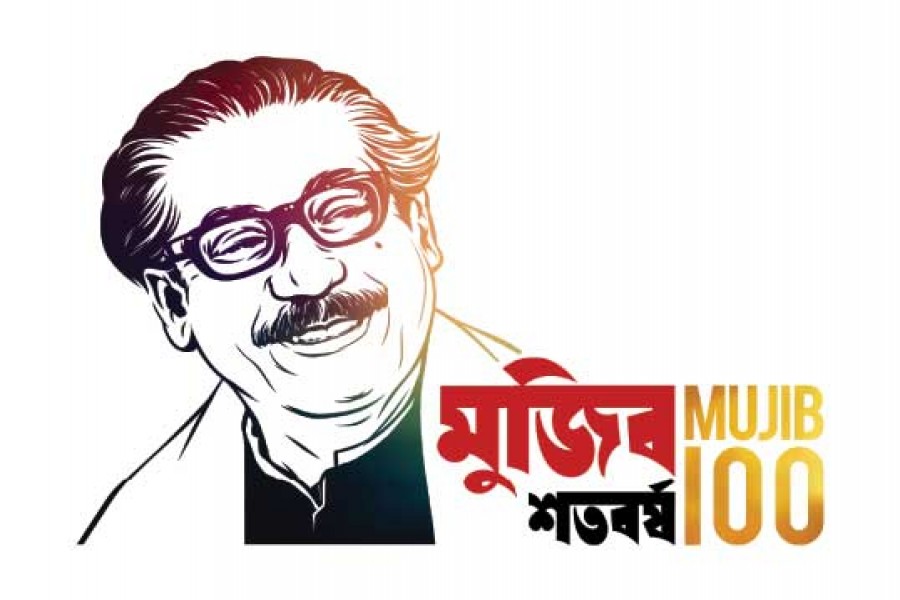Had he been alive today, he would be a centenarian. He is none other than Father of the Nation Bangabandhu Sheikh Mujibur Rahman. On the occasion of celebration of his centenary birthday, the declaration of the Mujib Borsho (dedication of a year to his memory) only demonstrates the unreserved love and respect the nation owes him. Unlike most other leaders, Mujib had an exceptional ability to remember an ordinary person and discern between the right and the wrong. But more than everything else it was his unbounded love for his people that made him different from professional politicians. To him the welfare of the suppressed, fettered and wretched people were the first and last mission. It is this love for the people that made him a matchless leader and an uncompromising politician. On the question of serving the people's cause, he had never compromised and his political journey -- albeit fraught with vicissitudes and dangers - took him to the ultimate goal, the liberation of Bangladesh.
Paying homage to such an iconic persona is no easy job, for his life is so vast touching every corner of this land and every aspect of Bangalee society that the dream of a Sonar Bangla (golden Bengal) he embarked on building but could not complete still acts a beacon. When finally independence came, it was the best of time, it was the most challenging of time. He had to be at the helm of a devastated country with its economy, communication network and infrastructure shattered, money from banks looted. To add to the woes, the hostility of the leadership of the richest and most powerful country on earth towards the new nation and its fragile economy proved highly disingenuous. Yet against all odds, Sheikh Mujib worked tirelessly to frame policies and plans -both administrative and economic to steer clear of the rough waters. Those act as the blue print of today's economic and social development. But his life was cut short before he could put in place his socio-economic programmes.
To his credit, Bangabandhu -the epithet that comes closer to defining his attachment to his people -coming from a sleepy village called Tungipara represented his people as a world leader. So towering was his personality that even the statesmen and diplomats from the developed nations would be self-effacing before him and treat him with great esteem. In no time there emerged a great leader on the world stage. Unpretentious, he would like to see that his people treat him as their own man, not a world leader. He succeeded well to make a balance between the two roles.
On the centenary day, the nation would do well to remember and emulate what he stood for. The degree of exuberance -most likely to be somewhat curtailed under the influence of coronavirus - must get to the salience of the event. Reflections on his commitment to democracy, secularism and economic emancipation of the lowest of the low can indeed help galvanise the nation with rock-solid resolution for the follow-up actions. Corruption and socio-economic disparities cannot be allowed to divert the country from the vision of an egalitarian society he held closest to his heart. All the pillars of the Constitution need the strongest avowal to be fully redeemed. Only then, paying tributes to the liberator of the nation would be complete. Let his unfinished tasks be taken up in earnest during the Mujib Borsho for completion in the days to come.


